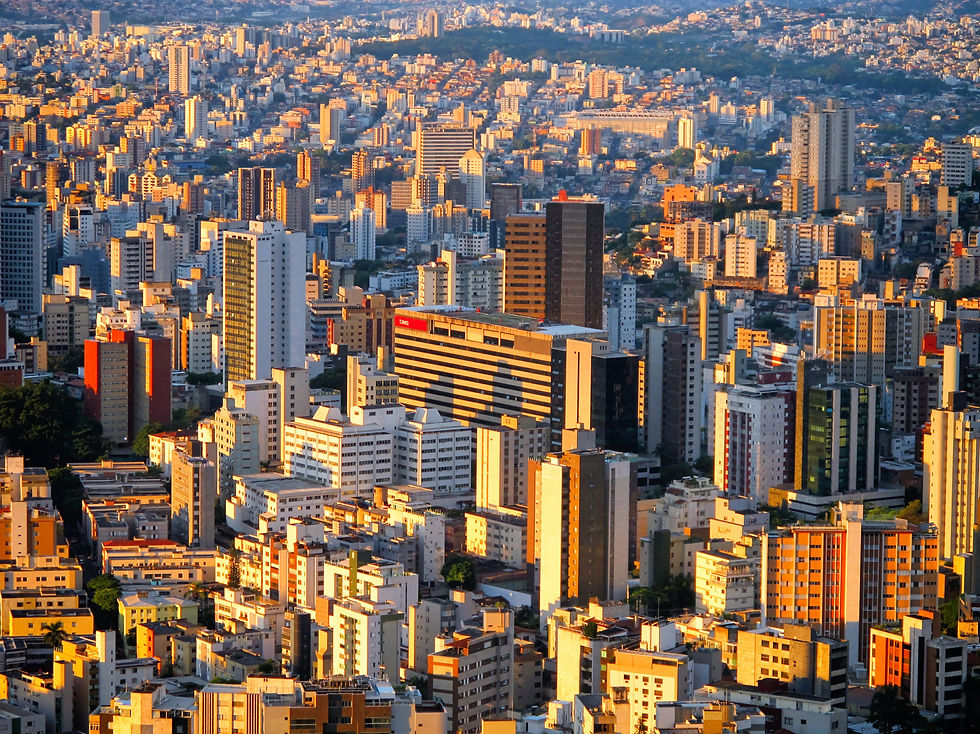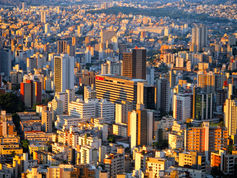The Best Universities in Kinshasa
- OUS Academy in Switzerland

- Aug 11, 2025
- 4 min read
Kinshasa, the lively capital of the Democratic Republic of the Congo, is not only the country’s largest city but also its biggest center for education. From historic public universities to growing private institutions, the city offers a wide choice for students seeking higher education. Here are ten of the most notable universities in Kinshasa, each contributing in its own way to the nation’s academic and professional development.
1. University of Kinshasa (UNIKIN)
The University of Kinshasa is one of the oldest and most respected institutions in the country. Founded in 1954, it began as Lovanium University and quickly became known for academic excellence. Today, it serves tens of thousands of students across a wide range of faculties, including medicine, engineering, law, economics, sciences, and the humanities. Its large campus is almost like a city within a city, with student residences, research centers, and a vibrant academic community. UNIKIN is often the first choice for students who want a comprehensive education supported by decades of tradition.
2. Université Pédagogique Nationale (UPN)
UPN was established in 1961 to train the next generation of teachers and education specialists. It has grown into a major public university with a strong reputation in pedagogy, educational sciences, and teacher training. Many of the country’s school leaders and education policymakers have passed through its classrooms. In recent years, UPN has invested in modern facilities, including digital libraries and new lecture halls, to adapt to the needs of today’s students. It plays a vital role in shaping the quality of education across the nation.
3. Université Libre de Kinshasa (ULK)
Founded in 1988, ULK was the first private secular university in the DRC. Its establishment provided students with more options outside the state university system. ULK offers programs in law, economics, social sciences, and technology, and is known for flexible academic pathways that suit working professionals as well as full-time students. The university has steadily expanded its infrastructure and continues to position itself as a modern alternative for those seeking quality education in an accessible environment.
4. Université Catholique du Congo (UCC)
UCC is a private Catholic university that traces its origins back to 1957. It combines academic rigor with moral and ethical values rooted in Catholic tradition. The university has faculties in law, economics, social sciences, medicine, and engineering. Its graduates are well respected in professional fields both in the DRC and abroad. Beyond academics, UCC focuses on community service, aiming to produce graduates who are not only skilled in their professions but also socially responsible citizens.
5. Université Protestante du Congo (UPC)
UPC was founded by the Protestant community with the mission of combining academic excellence with Christian values. It offers programs in theology, economics, law, and social sciences, and is well-known for its strong emphasis on ethics and community development. UPC is particularly active in research related to social justice, peacebuilding, and humanitarian work. The university attracts students from different regions who seek a balance between professional preparation and moral guidance.
6. Université de Technologie du Congo (UTC)
UTC is a relatively young institution, created in 2010 to meet the growing demand for technical and technological education. It focuses on engineering, information technology, business management, and applied sciences. With a more practical and industry-oriented approach, UTC prepares its students for careers in sectors that are vital to the DRC’s economic growth. Its laboratories, workshops, and partnerships with local industries give students hands-on experience to complement their academic studies.
7. Université Simon Kimbangu (USK)
USK was founded in 1994 and is named after Simon Kimbangu, a respected spiritual leader in Congolese history. It offers degrees in law, economics, theology, education, and management. The university emphasizes leadership, social responsibility, and the preservation of Congolese culture. USK has built a reputation for producing graduates who are active in community projects, non-profit organizations, and public administration.
8. Université William Booth (UWB)
UWB has historical ties to the Salvation Army and was inspired by the work of William Booth, its founder. It became a university in 1986 and offers programs in education, social work, management, and theology. The university places strong emphasis on serving society, especially disadvantaged communities. Many of its graduates work in humanitarian organizations, schools, and social programs across the country.
9. Université Cardinal Malula
Named after Cardinal Joseph Malula, an influential Congolese religious leader, this public university was established in 2001. It offers a wide range of programs, including agronomy, law, public health, computer science, economics, and engineering. The university is dedicated to regional development, with research and projects that focus on solving local challenges in agriculture, health, and technology.
10. Académie des Beaux-Arts (ABA)
The Académie des Beaux-Arts is Kinshasa’s leading institution for visual and applied arts. Established in 1943, it became part of the national education system in 1981. The school trains students in painting, sculpture, graphic design, interior architecture, and other creative fields. ABA has shaped many of the DRC’s most prominent artists and continues to be a hub for cultural expression. Its exhibitions and public art projects contribute greatly to Kinshasa’s vibrant cultural scene.
Final Thoughts
These universities together form the heart of higher education in Kinshasa. Whether a student’s interest is in medicine, engineering, education, the arts, or community service, there is an institution in the city that can provide the right training and opportunities. Kinshasa’s academic landscape is diverse, dynamic, and deeply connected to the country’s development.

Hashtags:












Comments